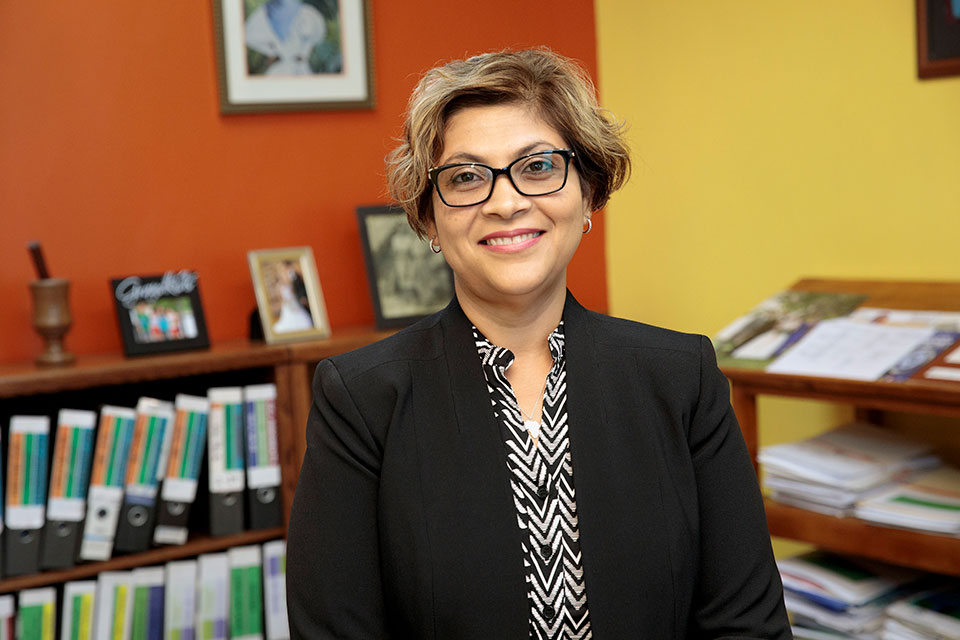This is what leadership looks like: Justice Lisa Ramsumair-Hinds, a judge from Trinidad and Tobago, is promoting gender-sensitive adjudication globally
Justice Lisa Ramsumair-Hinds, a judge in Trinidad and Tobago, is a champion for gender-sensitive adjudication, raising awareness and sharing her knowledge around the world. She talks about how support at home and mentorship from other judges played a crucial role in her success.Date:

“What keeps me going? The many women and girls who still need help,” says Justice Lisa Ramsumair-Hinds. “I am a part of the solution from within [the justice system].”
Fast facts
- Although more women lead in public life, progress to reverse harmful norms and reach gender parity is too slow. Having more women in the public sector and civil service brings more women’s perspectives to policy and enhances public service delivery.
- Women’s representation in the judiciary is key to ensuring that courts represent their citizens, address their concerns and hand down sound judgments. Globally, about 40 per cent of judges were women in 2017, 35 per cent more than in 2008. In Latin America, only 32 per cent of judges in the highest court or supreme courts are
- The lack of women in public sector decision-making positions leaves governments ill-equipped to respond to crises. Effective COVID-19 response efforts, for example, require the representation of diverse women, as well as in legislative, policy and budgetary decision-making processes, even if that requires the introduction of special measures, such as quotas.
- Women’s representation and participation in public life can also be improved through community outreach, mentoring, capacity development programmes, support with care responsibilities, and early exposure to legislative and policymaking spaces.
For more data on women’s leadership, see the UN Secretary-General’s Report
Justice Ramsumair-Hinds wanted to be lawyer since she was in primary school. She began her career as a prosecutor in Jamaica, where she says, “so much was done with precious little in the way of resources.” She returned to her home country, Trinidad and Tobago, and continued to practise law.
“I grew increasingly frustrated by the culture of adjournments,” says Justice Ramsumair-Hinds. “Time, effort and resources were wasted, at the expense of liberties, with little emphasis on social justice.”
In 2006, when her husband saw an advertisement for magistrates, he encouraged her to apply, saying, “change the system from within.” Justice Ramsumair-Hinds was sworn in as a magistrate in 2007 and after a decade in the summary courts, became a judge in 2017.
She remains inspired to change the system from within and says: “Women and girls have out-performed their male counterparts at every level of education [in Trinidad and Tobago]. At present, 66 per cent of our magistrates and 77 per cent of our High Court judges are women. Yet, for all the gains in academic circles and judicial appointments, society still labours under toxic manifestations of patriarchy.”
For example, even with a progressive Domestic Violence Act, Trinidad and Tobago has very high intimate partner violence prevalence rates – 44 per cent of women in Trinidad and Tobago experience abuse in their lifetime.
“Until we demand a genuine end to gender-based violence, we will keep advising girls to avoid ‘allowing’ themselves to become victims of rape, instead of making their attackers accountable,” says Justice Ramsumair-Hinds.